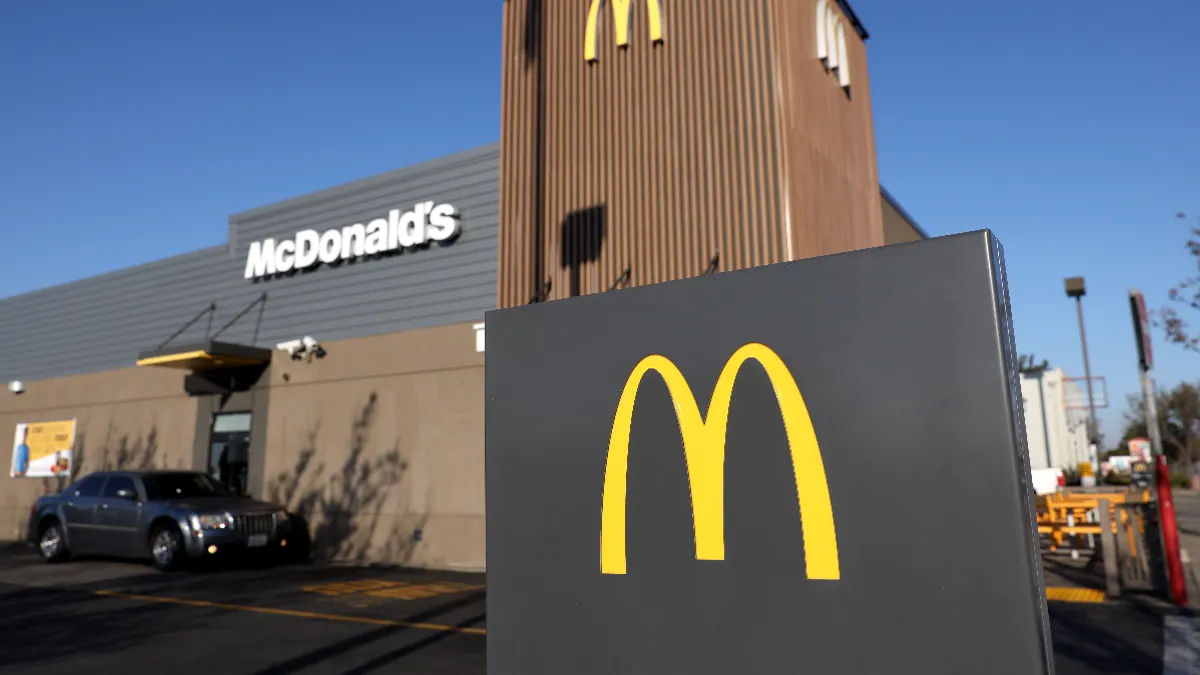Dive Brief:
- McDonald’s locations in a number of markets, including California and near Washington, D.C., are serving bagel sandwiches, Restaurant Dive confirmed Friday morning.
- A corporate task force established by McDonald’s recommended reviving the bagel sandwich four years after it was eliminated to drive traffic and, in part, to offset rising costs associated with California’s $20 fast food minimum wage, Bloomberg reported Thursday.
- Today.com reported that fans of the bagel sandwiches collated a list of over 1,200 locations serving the food across at least 11 states. McDonald’s did not immediately respond to a request for comment on the full geographical extent, temporal duration or motivation for the revival of its bagel sandwich.
Dive Insight:
Leadership at the Golden Arches have said the law in California presents an opportunity to take market share from less robust competitors with smaller unit volumes. In an earnings call where he discussed AB 1228 as a business opportunity, CEO Chris Kempczinski said the chain would also pursue improvements in productivity and some pricing increases.
Bloomberg reports that McDonald’s response has included other elements. The chain reportedly set up a task force called “Rise and Dominate” to study possible changes. McDonald’s is also testing a new scheduling system and dedicated $15 million to regional marketing efforts, per Bloomberg, and these combined efforts could raise sales by 10% at California locations. McDonald’s did not immediately respond to a request for comment on the task force or its recommendations.
Other brands have experimented with menu changes to soften the impact of rising labor costs, as well. Dave’s Hot Chicken, for instance, began testing a larger drink size at some locations to take advantage of the relatively high margins on beverages.
Many chains have pledged pricing increases to offset the wage growth. Ingrid Vilorio, a Jack in the Box worker and organizer with the Fight For $15 movement and California Fast Food Workers Union,said pricing moves in the industry pit workers against consumers.
“[Chains would] rather hurt consumers and blame workers for the price increases,” Vilorio, who was interviewed with the aid of a translator, said. “They just want to keep their millions and not lose in profits.”
Prices, Vilorio said, were rising well before the wage increase, but chains have used AB 1228 to justify raising prices. A study by the Roosevelt Institute, a progressive think tank, estimated that chains would not have to take much pricing to offset the wage increases in the long run.











